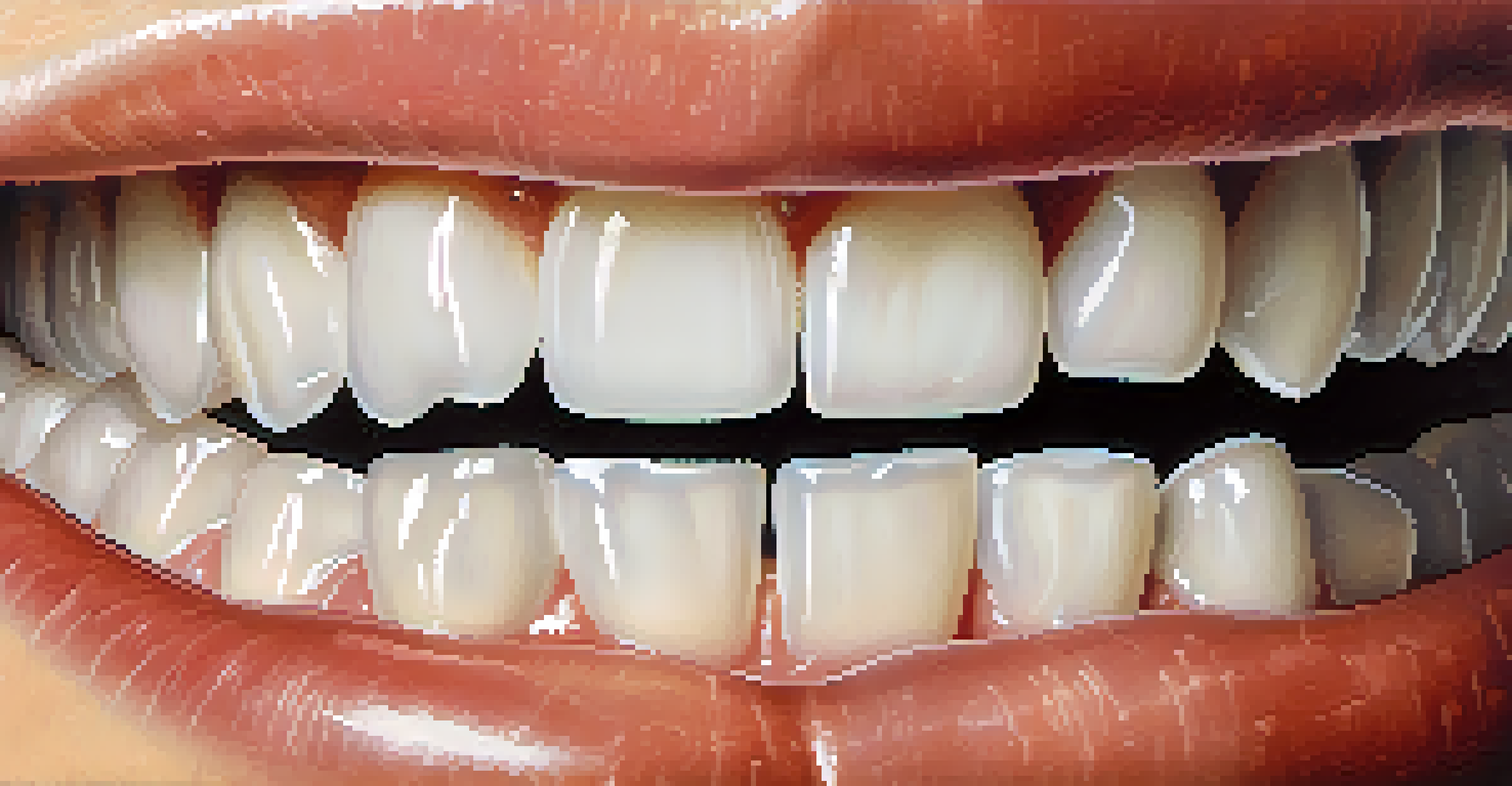The Role of Oral Hygiene in Managing Autoimmune Diseases

The Connection Between Oral Health and Autoimmune Disorders
Autoimmune diseases occur when the immune system mistakenly attacks healthy cells. This can lead to inflammation and a variety of health issues. Recent studies suggest that oral health plays a significant role in the management of these conditions. Poor dental hygiene can exacerbate systemic inflammation, potentially worsening autoimmune symptoms.
Oral health is a window to your overall health.
When oral bacteria enter the bloodstream, they can trigger an immune response. This response can lead to increased inflammation, which is particularly concerning for those with autoimmune disorders. Therefore, maintaining good oral hygiene is not just about keeping your teeth healthy; it can also impact overall health significantly.
For individuals with autoimmune diseases, prioritizing oral health can be a game-changer. Regular dental check-ups and effective oral hygiene practices can help mitigate risks associated with these diseases. Simple actions like brushing, flossing, and rinsing can have long-lasting benefits.
Common Autoimmune Diseases Linked to Oral Hygiene
Several autoimmune diseases have been linked to poor oral health. Conditions like rheumatoid arthritis, lupus, and Sjögren's syndrome often show increased severity in patients with gum disease. This connection emphasizes the need for individuals with these conditions to pay close attention to their oral hygiene.

For instance, rheumatoid arthritis can lead to inflammation in the gums, which may further trigger joint pain. Similarly, lupus patients can experience oral lesions that complicate their condition. By maintaining good oral health, patients can reduce the overall burden of their autoimmune diseases.
Oral Health Affects Autoimmune Disorders
Poor dental hygiene can worsen systemic inflammation, impacting the severity of autoimmune diseases.
Understanding these connections helps patients take proactive steps. Simple oral care routines can be integrated into daily life, making a significant difference in managing symptoms and improving quality of life.
The Role of Inflammation in Oral and Systemic Health
Inflammation is a common thread in both oral health and autoimmune diseases. Gum disease, characterized by inflammation of the gums, can lead to chronic inflammation throughout the body. This systemic inflammation can exacerbate autoimmune conditions, creating a cycle that's difficult to break.
The mouth is a gateway to the body's health, and oral diseases can have far-reaching effects.
When the body is in a state of chronic inflammation, it can lead to further complications, including increased pain and fatigue. This is why addressing oral health is crucial for those dealing with autoimmune disorders. By reducing inflammation in the mouth, patients may also alleviate systemic inflammation.
In essence, oral hygiene acts as a first line of defense. By keeping the mouth healthy, patients can potentially curb the inflammatory responses that affect their overall health.
Effective Oral Hygiene Practices for Autoimmune Patients
Daily oral hygiene practices are essential for managing autoimmune diseases. Regular brushing and flossing can help prevent gum disease and tooth decay. For autoimmune patients, using a soft-bristled toothbrush can prevent irritation and damage to sensitive gums.
Additionally, incorporating antiseptic mouth rinses can reduce harmful bacteria in the mouth. These rinses can be especially beneficial for those with compromised immune systems. Staying hydrated is also crucial, as many autoimmune diseases can lead to dry mouth, increasing the risk of dental issues.
Inflammation Links Oral and Systemic Health
Chronic inflammation from gum disease can exacerbate autoimmune conditions, creating a challenging cycle.
Creating a personalized oral hygiene routine can make a significant difference. Patients should consult with their dentists to tailor their practices to their specific needs, ensuring optimal oral health.
The Importance of Regular Dental Check-ups
Regular dental check-ups are vital for individuals with autoimmune diseases. These appointments allow dentists to monitor oral health closely and catch any issues early on. Early intervention can prevent more severe complications down the line, making these visits invaluable.
During check-ups, dentists can also provide professional cleanings, which help remove plaque and tartar that regular brushing might miss. This professional care is especially important for patients with autoimmune disorders, as their bodies may not respond as effectively to infections.
Establishing a routine of regular dental visits can empower patients. Knowing that their oral health is being monitored can provide peace of mind and lead to better overall health management.
Dietary Considerations for Oral and Autoimmune Health
Diet plays a crucial role in maintaining both oral hygiene and managing autoimmune diseases. Consuming a diet rich in vitamins and minerals can strengthen the immune system and improve oral health. Foods high in antioxidants, such as fruits and vegetables, can help combat inflammation.
On the flip side, certain inflammatory foods—like sugar and processed snacks—can exacerbate both oral and autoimmune issues. Reducing these foods can lead to better health outcomes. It's all about finding the right balance and making informed dietary choices.
Regular Dental Visits Are Essential
Consistent dental check-ups help monitor oral health and prevent complications for autoimmune patients.
Incorporating foods that promote oral health, such as dairy products for calcium and crunchy fruits for natural cleaning, can be beneficial. Patients should consider working with a nutritionist to create a diet tailored to their needs.
Conclusion: A Holistic Approach to Health
In conclusion, oral hygiene is a vital aspect of managing autoimmune diseases. By understanding the connection between oral health and autoimmune disorders, patients can take proactive steps to improve their overall well-being. Simple practices can lead to significant health benefits.
Taking care of your mouth is not just about aesthetics; it's about supporting your entire body. Regular dental care, combined with a healthy diet and effective oral hygiene practices, can help mitigate the effects of autoimmune diseases.

Ultimately, adopting a holistic approach to health that emphasizes the importance of oral hygiene can empower individuals. By prioritizing oral health, patients can experience improved quality of life and better management of their autoimmune conditions.